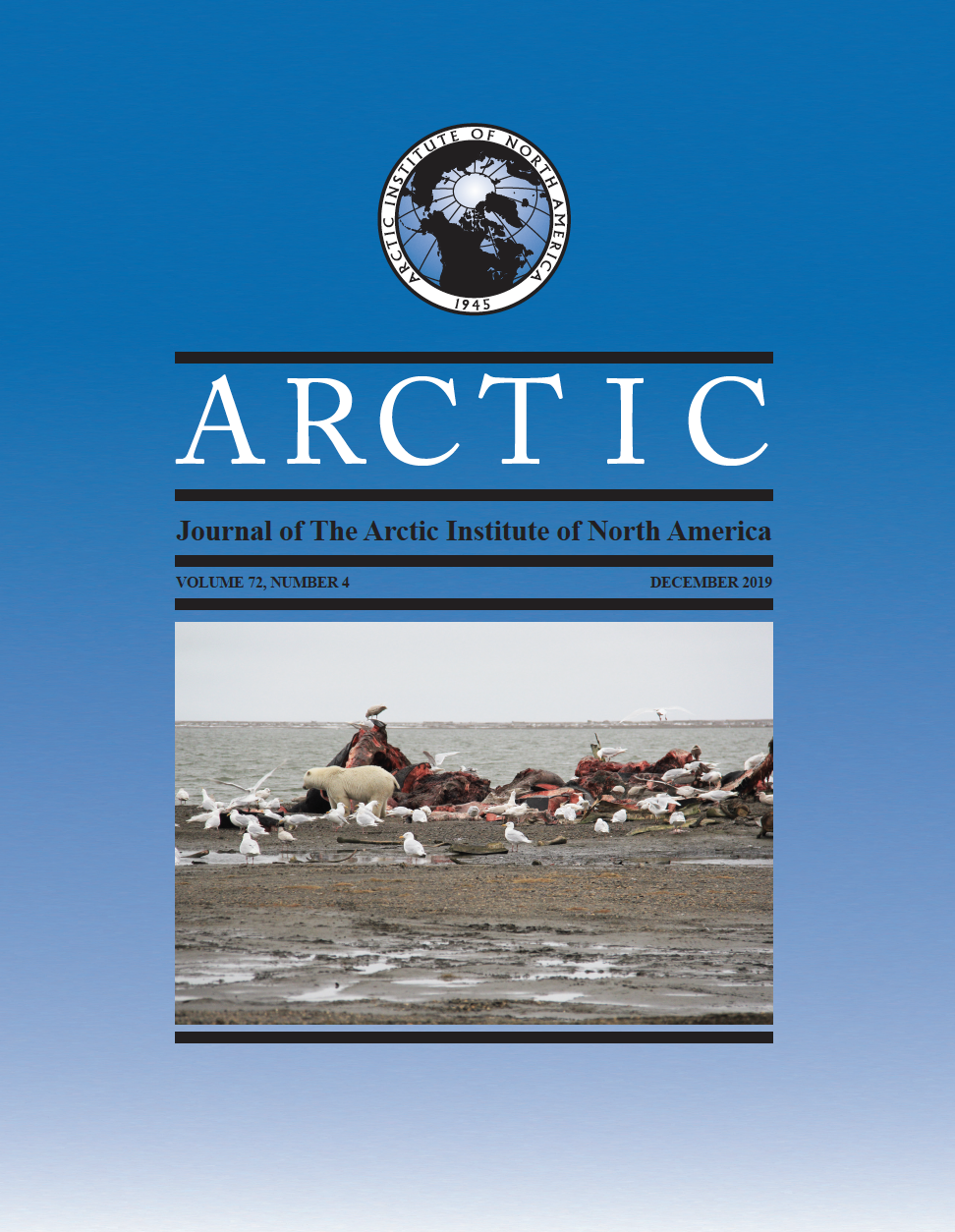Lessons Learned through Research Partnership and Capacity Enhancement in Inuit Nunangat
DOI :
https://doi.org/10.14430/arctic69507Mots-clés :
recherche communautaire; Arctique; Inuit; jeunes; transport de marchandises; connaissances des Inuits; rehaussement de la capacité; relations de recherche nord-sud; autodétermination; démarche de partenariat; méthodologieRésumé
Le fait de faciliter la recherche et de rehausser la capacité de recherche communautaire par le biais d’une démarche axée sur les partenariats dans l’Inuit Nunangat (la patrie des Inuits du Canada, dans l’Arctique canadien) présente des occasions d’apprentissage et des défis pour les chercheurs non inuits du Sud et les membres de la communauté. Cet article fait ressortir les leçons apprises grâce au projet « Arctic Corridors and Northern Voices (AC-NV) » ayant fait appel à 14 collectivités de l’Inuit Nunangat. Le projet AC-NV avait pour but de comprendre les incidences cernées par la communauté et les options de gestion éventuelles en matière d’intensification du transport des marchandises dans l’Inuit Nunangat en raison de l’amenuisement de la glace de mer et du changement climatique. La démarche de recherche s’est traduite par un travail mené en collaboration par des chercheurs invités, des partenaires communautaires et des organisations locales, de même que par la formation et l’embauche de jeunes du Nord à titre de liaisons culturelles et de coanimateurs d’ateliers. Nous nous sommes efforcés de concevoir un modèle de partenariat coopératif caractérisé par de solides relations de recherche entre le Nord et le Sud. Dans cet article, nous nous appuyons sur nos vastes expériences d’apprentissage découlant de quatre études de cas communautaires réalisées dans le cadre du projet AC-NV : Arviat, Cambridge Bay, Gjoa Haven et Pond Inlet, au Nunavut. Dans chacune de ces collectivités, des partenariats étroits ont été créés, et 32 jeunes ont été formés en cartographie participative et en animation d’ateliers. Grâce à notre équipe variée composée d’Inuits, de chercheurs du Nord (c’est-à-dire des chercheurs non inuits, mais qui vivent dans l’Inuit Nunangat) et de chercheurs non inuits du Sud, nos efforts de recherche en partenariat ont représenté une composante critique de l’expérience de recherche et d’apprentissage. Dans cet article, nous faisons part de nos réflexions méthodologiques et des leçons que nous avons tirées de la signification pratique de la recherche coopérative en partenariat. Ce faisant, nous voulons faire notre part dans le dialogue de plus en plus prépondérant et dans les efforts relatifs à la coproduction de connaissances et à l’autodétermination des Inuits en matière de recherche. Parmi les grandes conclusions de cet exercice de réflexion, notons l’importance 1) de faire des recherches qui se rapportent aux besoins et aux intérêts locaux, 2) de faire en sorte que les chercheurs invités et les organisations locales travaillent en collaboration, 3) de coproduire et de peaufiner des outils de documentation des connaissances, 4) d’inclure les jeunes à titre de liaisons culturelles et de coanimateurs, 5) de procéder à la validation des résultats et à des exercices de partage, et 6) d’être prêt à nouer des amitiés personnelles. Dans le cas du projet ACNV, la méthode du partenariat communautaire a permis d’obtenir des résultats de recherche plus solides, de renforcer les relations nord-sud et de rehausser la capacité locale en vue de projets communautaires.


